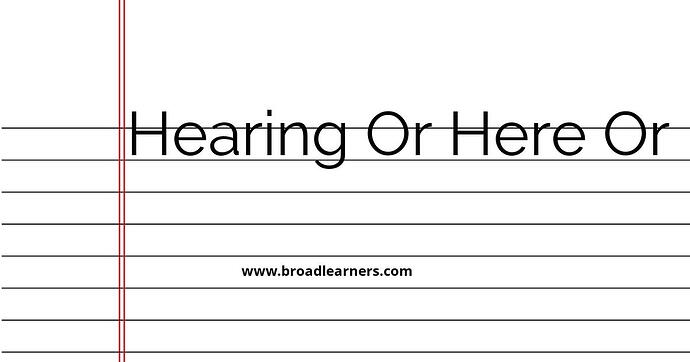'Hearing', 'here', and 'herring' are commonly confused words in English grammar. Understanding the difference between 'hearing', 'here', and 'herring' is important to use them correctly in written and spoken English.
'Hearing' is a noun that refers to the sense or act of perceiving sound. It is the ability to perceive sound through the ears.
'Here' is an adverb that indicates a specific location or position. It is used to refer to the place where the speaker or writer is currently located or to refer to a specific place that has been mentioned or is being pointed to.
'Herring' is a noun that refers to a type of fish. It is a silvery fish that is often used for food.
Let's take a closer look at the meanings and usage of 'hearing', 'here', and 'herring'.
| 'Hearing' | 'Here' | 'Herring' |
|---|---|---|
| The word 'hearing' is a noun that refers to the sense or act of perceiving sound. | The word 'here' is an adverb that indicates a specific location or position. | The word 'herring' is a noun that refers to a type of fish. |
|
|
|
To remember the difference between 'hearing', 'here', and 'herring', it can be helpful to understand their meanings and usage in different contexts.
Here are some examples of correct usage:
- I have a hearing appointment tomorrow. (referring to the sense of perceiving sound)
- Can you come here and help me? (referring to a specific location)
- She caught a herring while fishing. (referring to a type of fish)
Remembering the correct usage of 'hearing', 'here', and 'herring' will improve your grammar and communication skills.
